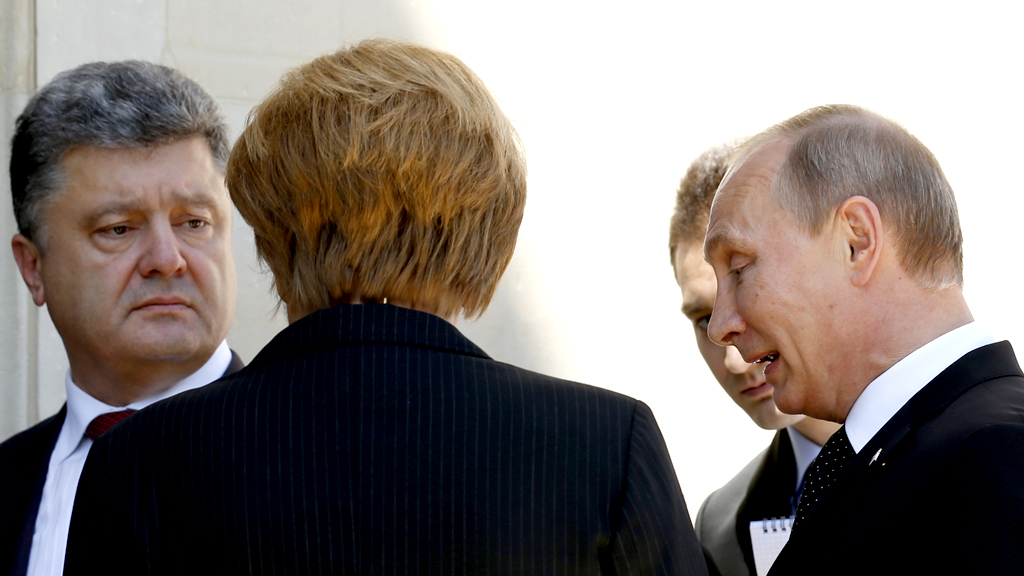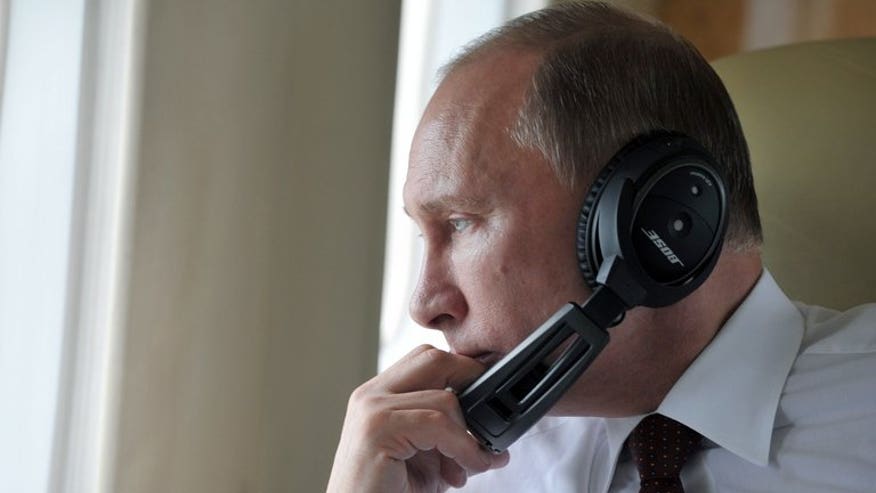BY CASSANDRA VINOGRAD

After months of threatening the start of Cold War 2.0, Russia’s Vladimir Putin has shifted from troop movements to talk of compromise.
The change of tune has been cautiously welcomed by the West, but experts and analysts warn that the Russian president is unlikely to be backing down.
"It would be immensely foolish to act upon what Putin says," according to James Nixey, who heads the Russia and Eurasia Program at London-based think tank Chatham House. "It is a huge misreading of Vladimir Putin and everything that he stands for to think that he’s backing off now and it’s all over."
Analysts said that Putin’s comments are less conciliatory than a change in tactics toward achieving his great ambition: Russia’s re-emergence as a superpower.
"The tone has changed for a simple reason – it benefits him," Nixey said. "He doesn’t do anything that doesn’t benefit the Russian tactical game."

The Russian leader has “an enormous toolbox” of various instruments to get what he wants – military capabilities, cyber-warfare, corruption and diplomacy, according to Nixey.
"Putin doesn’t really care which tools he uses – he just uses the ones that he thinks fit best with Russia’s strategic interest," Nixey said.
Putin touched off a diplomatic crisis and tense showdown with the West by annexing Crimea and moving Russian forces to the border with Ukraine.


But earlier this week, he instructed Russia’s parliament to repeal a law allowing Moscow to order a military intervention in Ukraine and expressed support for a ceasefire between the newly-installed Kiev government and pro-Russian rebels in the country’s east.
Western leaders – including Secretary of State John Kerry – have stressed that words must be translated to actions.
"It is critical for Russia to show in the next hours, literally, that they're moving to help disarm the separatists, to encourage them to disarm, to call on them to lay down their weapons and to begin to become part of a legitimate process," Kerry told reporters in Paris on Thursday.
Kerry noted that possible sanctions against Russia will be discussed later in the day by European Union leaders in Belgium."We all agree that they need to be ready. But our preference is not to have to be in a sanctions mode,” he added.

It would be wrong to take Putin’s recent comments as a response to sanctions, according to Nixey.
"He has a goal, he has an ambition, and an election in Ukraine or some fairly weak sanctions are not making him say, ‘Actually, you guys were right, you win,'" Nixey said. "It’s just a cover for what he wants, which is for Ukraine to be east of an East-West dividing line. He might still use tanks if it’s all going wrong."

Putin pictured in a helicopter watching a naval exercise of the Pacific Fleet as part of the military exercises in the Eastern Military District, Sakhalin region, Russia.
Moscow’s reasoning behind any escalation was publicly stated as ensuring the protection of Russian citizens in Ukraine, though ensuring that Kiev remains neutral and doesn’t join NATO heavily figured into Putin's previously hostile approach.
"Putin’s endgame is the maintenance of influence in the former Soviet Union and the establishment and security of his leadership at home, which play into each other," said Matthew Clements, who heads the Europe and CIS country analysis team at IHS. "It plays very popularly domestically to project a strong image of Russia internationally."

While Putin’s recent remarks and moves confirm that Russia does not wish to become militarily involved in Ukraine, Clements said that the country’s importance to Moscow as a key buffer to what it views as NATO’s encroachment remains the same.
"The endgame is making sure that Ukraine remains neutral and isn’t a member of NATO and that Russia still has significant influence in the country," said Clements. "It’s clear from Russia’s perspective now that its goal can probably be met without having military intervention."

That reflects Russia’s understanding that using military force in eastern Ukraine would be politically damaging, invoke much more serious sanctions and involve Russian forces in a costly and protracted campaign, according to Nixey.
"The threat of military intervention was something that served the purpose at the time," Clements said, adding that continued instability in eastern Ukraine has only helped Putin’s case. "What would be better from a Russian perspective now would be to say we’re pushing for a peaceful option."

No comments:
Post a Comment